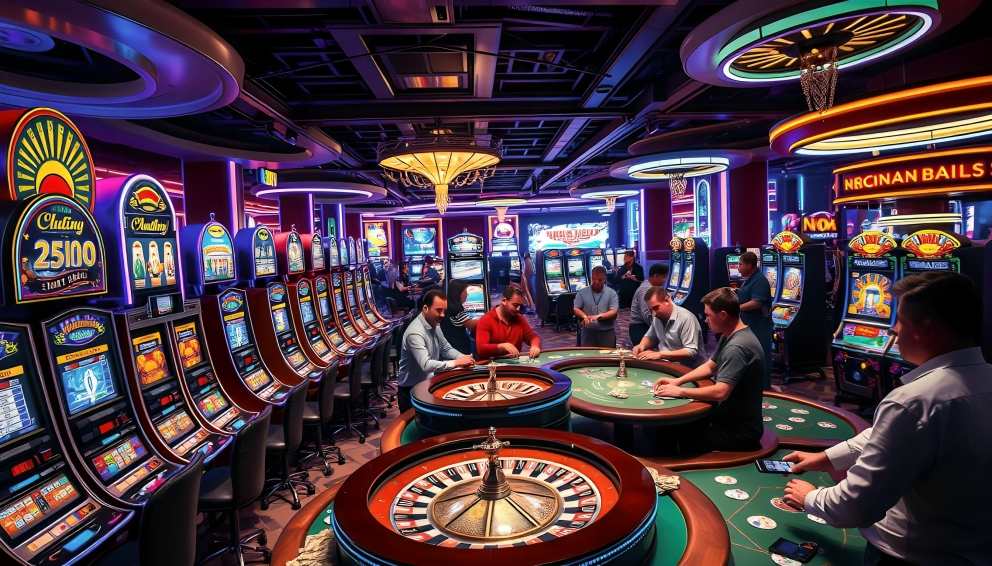Casinos are carefully designed to keep players engaged for as long as possible. Every detail, from the layout to the lighting and sounds, is strategically crafted to create an immersive experience. Bright, flashing lights, lively music, and celebratory sounds when someone wins trigger dopamine release, making the brain associate gambling with pleasure. In addition, many casinos offer tempting promotions, like a 200 welcome bonus, to attract new players and encourage them to start playing with extra funds.
Another common tactic is near-miss psychology, often used in slot machines. When players land two out of three matching symbols, it creates the illusion of being close to a win, motivating them to keep playing. This effect leads players to believe that a big win is just around the corner, encouraging them to spend more. Combined with attractive offers like the 200 welcome bonus, these psychological strategies make gambling more engaging and prompt players to return for more.
Loyalty Programs and Rewards: Encouraging Repeat Visits

Casinos use loyalty programs, similar to airline miles or hotel points, to encourage repeat visits. These programs track players’ spending and offer rewards in return, creating an incentive to keep gambling. The more a player wagers, the greater the rewards, which helps promote long-term engagement.
Many casinos have tiered membership systems where players earn points to increase their status, unlocking bigger rewards at higher levels. Premium tiers offer exclusive benefits such as priority service, better promotions, and VIP access, motivating players to keep playing in order to maintain their status. Personalized offers are also a common strategy—casinos analyze player data to send customized promotions, such as free play, discounted hotel stays, or complimentary meals. Some even offer loss rebates, returning a percentage of losses as cashback, making players feel like they’re recouping some of their money, thus encouraging further play.
In addition to financial incentives, these programs also foster a sense of exclusivity, making players feel valued and strengthening their loyalty. High-spending customers often receive special treatment, including invitations to exclusive events, luxury gifts, or personal account managers. By combining psychological appeal with financial rewards, casinos create powerful loyalty programs that keep players engaged.
House Edge and Game Design: Strategies for Achieving Long-Term Profitability.

Every casino game is designed with a built-in advantage for the house, known as the house edge. While players may experience short-term wins, the odds consistently favor the casino over the long term. This mathematical edge ensures that, regardless of individual outcomes, the casino remains profitable in the long run.
For example, slot machines usually have a return-to-player (RTP) rate of 90–95%, meaning for every $100 wagered, the casino retains $5–$10. Roulette has a house edge of around 2.7% in the European version and 5.26% in the American version, ensuring that players are likely to lose over time. In blackjack, skilled players can reduce the house edge to less than 1%, but casual players who make strategic errors inadvertently increase the casino’s advantage.
Casinos also optimize the placement of games to maximize engagement. High-volatility games, which offer large but infrequent payouts, are positioned in high-traffic areas to attract attention. In contrast, lower-risk games with frequent but smaller wins are placed further inside the casino to encourage longer play sessions.
Beyond the odds and game placement, casinos employ psychological strategies to keep players engaged. Loyalty rewards, complimentary drinks, and an immersive atmosphere help players lose track of time and continue playing. By combining mathematical advantages with strategic design, casinos ensure consistent profits while providing an exciting experience for players.
Comped Perks and VIP Treatment: How Casinos Keep High Rollers Engaged

Casinos rely on high-stakes players, often called “whales,” who contribute significantly to their revenue. To ensure these players return, casinos offer exclusive benefits that enhance their gambling experience. These high-value individuals receive personalized attention, making them feel valued and motivated to keep playing. Even mid-tier players enjoy smaller rewards, helping to reinforce their loyalty.
Casinos use various strategies to retain their most profitable customers:
Luxury Accommodations and Travel – High rollers are treated to complimentary stays in lavish suites, private jet services, and access to exclusive resort amenities. These perks elevate the gambling experience to a luxurious level.
Personalized Services and VIP Access – Elite players are assigned dedicated hosts who provide priority reservations, exclusive event invitations, and tailored incentives. Special access to concerts, sports events, and private parties further enhances their appeal.
Compensation and Cashback Offers – Some casinos offer rebates on losses to ensure players feel they are getting value in return. Customized bonus structures and free play credits encourage continued engagement.
These perks serve more than just a generous gesture; they have a strategic purpose. By making players feel appreciated, casinos encourage extended play and repeat visits. The ultimate goal is to create an experience where gambling feels more rewarding than just winning money. Whether through personalized service, luxury experiences, or financial incentives, casinos ensure their most loyal customers keep coming back.

